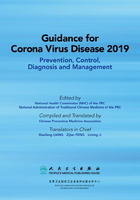
2 The Guidelines Propose Suggestions on Kindergartens(or Schools), Nursing Home, Office Space, Vehicles, Public Places and Home Quarantine.
2.1 Kindergartens(or Schools)belong to a kind of children and adolescents densely populated places. Students who have a history of living or traveling in a high epidemic area or have suspected symptoms are suggested to have a 14-day period of home quarantine before returning to school. School authorities should monitor students’ body temperature twice a day and require students to wear masks correctly. If suspicious symptoms are found among students, school offices should cooperate with medical and health institutions to conduct management and disinfection for the close contacts. Large collective activities or gathering should be cancelled and ventilation and cleaning of relevant places should be strengthened.
2.2 Nursing institutions are suggested to implement a closed management of no going out, no visiting and no admitting for new residents.Ventilation and warmth of the rooms as well as publicity and education of prevention and control knowledge and health monitoring for the elderly and staff should be reinforced. Staff with suspicious symptoms should immediately go to hospital for medical examinations and are not allowed to go back to work until the suspected 2019-nCoV infection and other infectious diseases have been excluded. Isolation rooms for future treatment of the elderly with suspicious symptoms should be prepared. Those with suspicious symptoms should be isolated in time and transferred to medical institutions for treatment in accordance with relevant regulations. At the same time, all visiting activities should be suspended.
2.3 In office space and public places(shopping malls, restaurants,cinemas, KTV, internet cafes, public baths, gymnasiums, exhibition halls,railway stations, subway stations, airports, bus stops, etc.), health monitoring of staff should be reinforced, and those with suspicious symptoms are not allowed to work. Disinfection of public goods and ventilation of public places should be conducted regularly. Keep the environment sanitary and clean, and clean up the garbage in time. Ensure enough hand sanitizer in the washrooms and normal operation of water facilities. During the epidemic,people should avoid going to public places, especially to densely populated places of poor ventilation.
2.4 Staff of vehicles(including aircraft, buses, subways, trains, etc.)should wear masks, and keep rotated days off. In the vehicles, thermometers and masks should be provided, ventilation and tidy and clean should be maintained, garbage should be cleaned up timely, and the frequency of cleaning and disinfection should be increased.
2.5 People with suspicious symptoms need to live in a single room during home quarantine or isolation. If conditions do not permit, they should stay at least one meter away from family members. All members should wear marks, wash hands frequently, and ensure the shared space well ventilated. Goods used by the members with suspected symptoms should be dropped in a special garbage bag and marked as a contaminant.People or their family members with symptoms like dyspnea, consciousness change, diarrhea and fever ≥39 °C should seek immediate medical treatment.